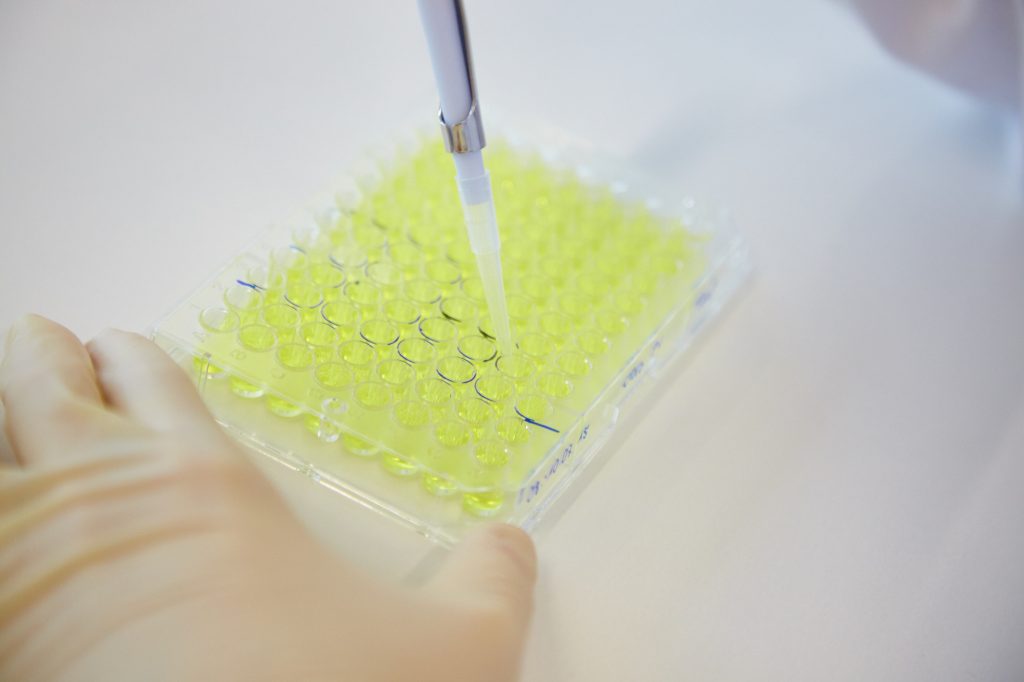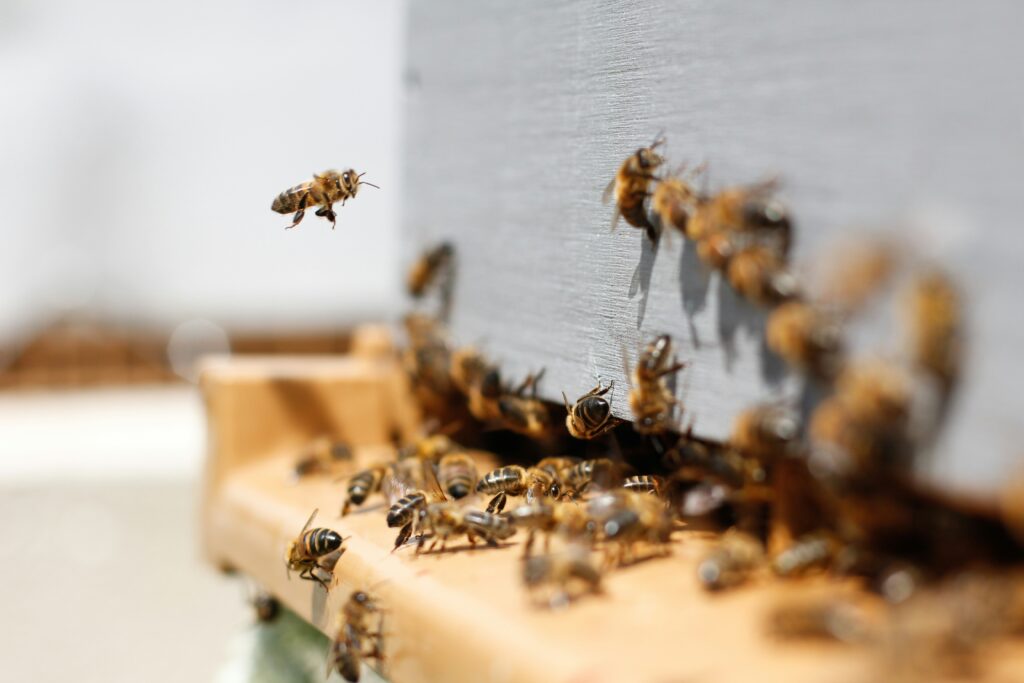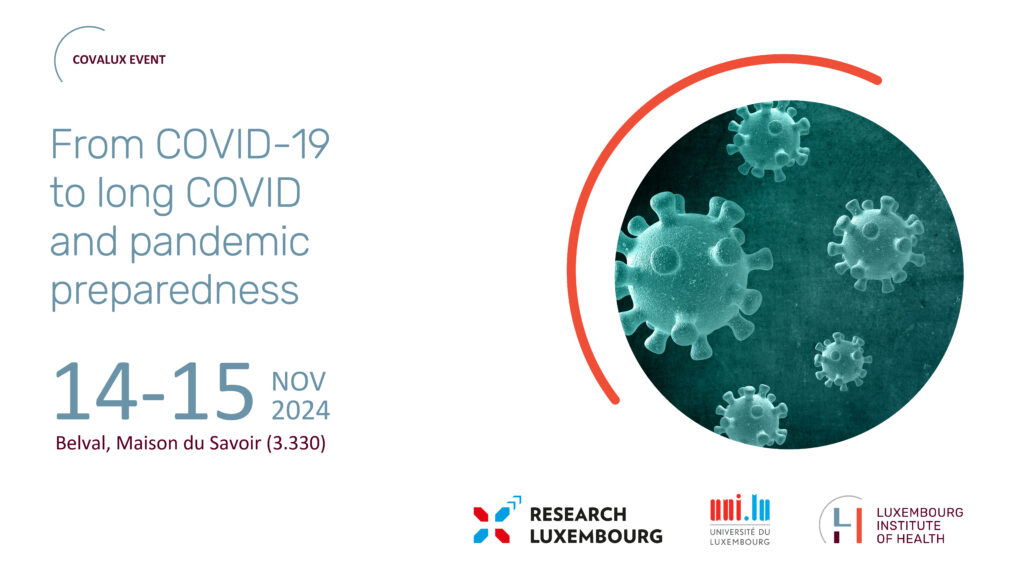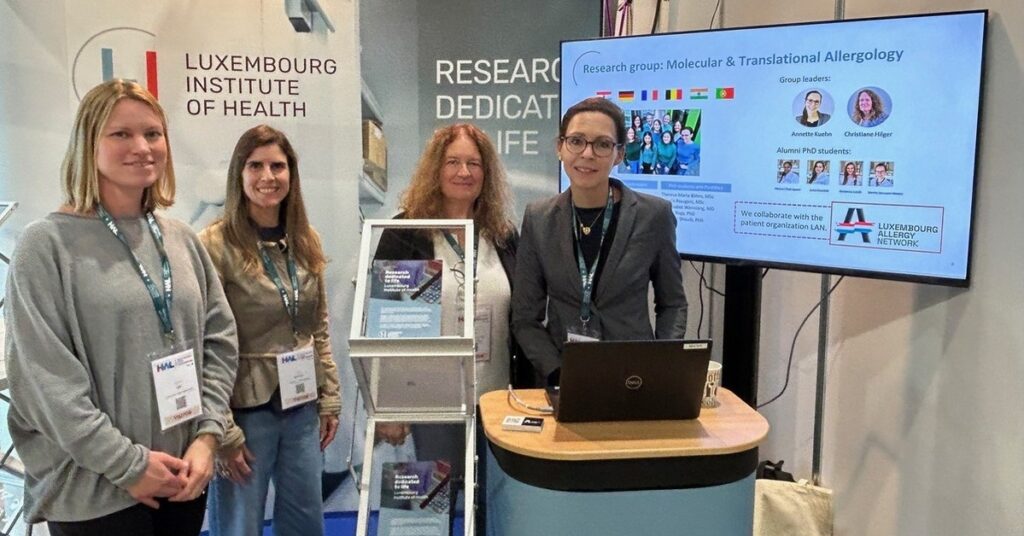News
FNR COVID-19 Fast Track Call results

Eight LIH projects shortlisted for funding
On Friday, April 24th, the Luxembourg National Research Fund (Fonds National de la Recherche – FNR) announced the results of the first round of financing under its novel COVID-19 Fast Track Call. A total of 30 out of the eligible 69 projects have been retained for funding, corresponding to an FNR commitment of EUR 1.52 million. Namely, eight LIH projects are among the selected ones, for a total support amounting to almost EUR 416,000.
On April 3rd, the FNR launched the special FNR COVID-19 funding programme in the framework of one of the Research Luxembourg Task Force work packages, related to the implementation of new initiatives in the current pandemic context. The COVID-19 Fast Track Call aims to (co-)support short-term research projects on COVID-19, or the starting phase of longer-term ones, in order to accelerate the understanding and treatment of the disease, as well as addressing the legal, socio-economic and infrastructural aspects associated with the pandemic. Following the first deadline of the call on April 14th, 30 projects were shortlisted for funding across various categories – and specifically 14 under Biomedical and Life Sciences, five under ICT, four under Humanities and Social Sciences, four under Law and Economics, two under Material Sciences and one under Sustainable resources.
Namely, eight LIH projects from the Quantitative Biology Unit (QBU), the Department of Population Health (DoPH) and the Department of Infection and Immunity (DII) will benefit from the financial support of the FNR under this call. These will investigate multiple aspects of the COVID-19 infection, from tissue damage, microbiome alterations and disease severity, to immunity, virus neutralisation and epidemiology.
Specifically, “CovSerum” (Early Detection Of Covid19-induced Tissue Damage And (Hyper)Inflammation From Serum Samples), led by Prof Gunnar Dittmar, aims to identify protein sets in serum samples which could indicate damage to tissues as a result of infection with SARS-CoV-2. Moreover, Prof Dittmar and his team will quantify the levels of cytokines and other inflammatory proteins, with the goal of finding new diagnostic markers that would enable the detection of high-risk patients. The study has been granted EUR 79,900 under the call.
The “miRCOVID” project (Microrna Biomarkers Of Covid-19 Severity), led by Dr Yvan Devaux, will identify circulating microRNAs (miRNAs)[1] able to predict COVID-19 severity. The discovery of novel prognostic biomarkers under this project, which is part of the Predi-COVID study of the Research Luxembourg Task Force, will help detect patients at high risk of developing complications after infection by SARS-CoV-2 virus, therefore contributing to a personalised treatment for each individual patient. “miRCOVID” has been awarded EUR 50,000.
Prof Mahesh Desai will lead “Funbiome” (Functional Characterisation Of Covid-19 Patient Gut Microbiome), which received EUR 50,000 from the FNR. The study will explore the involvement of the gastrointestinal tract in disease pathology, looking particularly at the composition of the gut microbiome of infected patients and the effects of its alterations on disease susceptibility and immunity. The project will analyse stool and blood samples collected from COVID-19 positive individuals in the framework of the existing CON-VINCE and Predi-COVID cohort studies.
Under the project “NEUTRACOV” (A Novel High Throughput Assay To Measure Plasma Neutralizing Activity Against Sars-cov-2), Dr Danielle Perez Bercoff and her team will develop a high-throughput assay to measure the ability of antibodies obtained from the plasma of recovered patients to effectively neutralise SARS-CoV-2. The test will be used to identify plasma with high neutralising activity, in view of its transfer to infected patients by plasmapheresis, and to understand which specific antibodies display this neutralising activity, thereby providing a rationale to predict patient outcome. The project was funded with EUR 50,000.
Dr Chantal Snoeck’s project “Colive” (Role Of Companion And Livestock Animals In The Epidemiology Of Sars-cov-2) will elucidate the role of domestic animals and livestock in the epidemiology of the disease, benefiting from a EUR 49,800 grant. Specifically, her team will look at symptomatic and asymptomatic SARS-CoV-2 infections in these species, identify the factors that promote virus transmission across species and investigate the role of domestic and livestock animals as hosts potentially able to sustain virus circulation. The findings will assist public health authorities in their virus containment and elimination measures.
Through the “HorCoVIS” study (Hormonal Status As Predictor Of Covid-19 Infection Severity), Dr Brice Appenzeller and his team will assess how the hormonal status of patients prior to infection could be associated with the severity of their symptoms and possibly used as a predictive tool. The project was awarded EUR 50,000.
“RAS CoV-2” (Peptide/Protein/Single-cell Map Of The Renin-angiotensin System In Covid-19), led by Dr Antonio Cosma, will study the renin-angiotensin system (RAS)[2], to which belong the receptors that allow the SARS-CoV-2 virus to enter host cells. These receptors are also expressed on immune system cells. By carrying out a quantitative assessment of the RAS at the protein and cellular level in individuals infected by the SARS-CoV-2, the project aims to understand the correlation between RAS and COVID-19 prognosis, which would shed light on how viral infection modulates the RAS, the immune system and the expression of the receptors. The project received EUR 36,000 in funding.
Finally, “COV-Immun” (Development Of A High Performance Covid-19 Immunoassay, An Essential Tool To Establish Immunity Passports In The Luxembourgish Population), led by Dr Christiane Hilger, aims to set up a high-performance and flexible diagnostic assay to assess the immune status of the population, based on Luxembourg-sourced reagents and techniques. This serological test can be readily adapted to changing needs, such as the inclusion of newly emerging virus strains. The project was granted EUR 50,000.
“We are very grateful to the FNR for their unwavering support, particularly at times like these. The grants will allow our researchers to bring significant contributions to the understanding, treatment and management of COVID-19 in Luxembourg”, states Prof Ulf Nehrbass, LIH CEO.
The second deadline for the call is May 11th, for which short descriptions of project ideas must first be published on the COVID-19 platform by April 29th in order to be considered for funding.
[1] Small non-coding RNA molecule involved in RNA silencing and post-transcriptional regulation of gene expression.
[2] A hormone system that regulates blood pressure and fluid balance.
MORE INFORMATION
For the latest news about COVID-19, visit coronavirus.lih.lu and the COVID-19 platform







